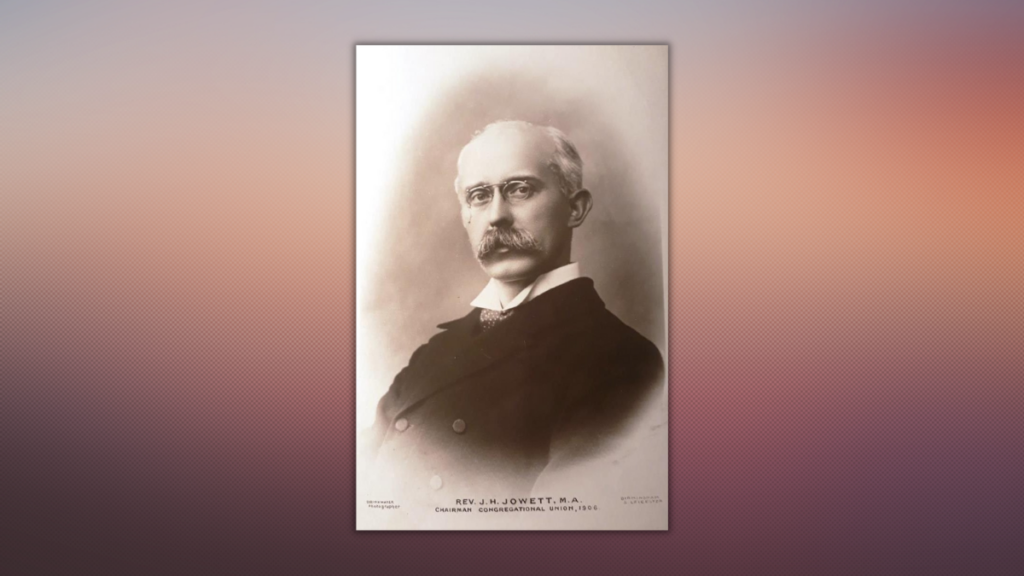What do conservatives do after Roe? We need to focus on helping families
Now that the nearly 50-year struggle to overturn Roe v. Wade and allow states to pass laws that recognize the unborn has proven successful, where does family-based conservatism go from here?
We are in a moment when shaping our policy proposals around the basic social building block of the family is both a winning strategy and one good for human flourishing.
What would family-based conservatism look like? First, it should begin by protecting the most fragile members of our human family. As the abortion debate moves to the states, conservatives should work to pass meaningful restrictions on the practice.
Though the majority of Americans don’t yet favor a total ban on abortion, there is growing support among Americans for significant restrictions.
Valuing life
According to a survey conducted by Lifeway Research and the Land Center for Cultural Engagement, 41% of Americans favor restrictions after the sixth week of pregnancy, 52% favor restrictions after the 12th week, 59% favor a ban on abortions after 15 weeks and 65% favor a ban after 20 weeks.
What’s more, 35% of Americans believe life begins at conception. Another 28% believe life begins at the detection of the first heartbeat.
The end of Roe could be the dawn of a new era in which the most vulnerable among us are seen not as inconveniences to be discarded, but as full and welcomed participants in America’s promise of liberty.
But conservatives shouldn’t be satisfied with merely passing laws that recognize the dignity of the unborn. We should supplement the growing network of pregnancy resource centers and other compassionate endeavors by championing policies that help sustain a healthy and flourishing family life.
Patrick Brown, a fellow at the conservative Ethics and Public Policy Center, wrote in the New York Times, “Helping women, including low-income and working-class women, gain access to more resources during pregnancy and after childbirth will reduce the demand for abortion while state legislatures pass bills restricting the supply. Republican lawmakers should coalesce around a legislative package that takes seriously the unique needs of mothers and their babies.”
Our survey showed there is significant support for this, with 81% of Americans, including 61% of pro-life Americans, saying they believe state governments have a responsibility to increase support and options for women who have unwanted pregnancies.
Offering stability
This growing support fits well with many conservatives’ growing openness to economic policies that buoy family stability. This is why pro-life advocacy groups such as Susan B. Anthony List are building infrastructure to help champion and deliver services to women and families in need.
Conservatives can and should debate the finer details of what a pro-family agenda looks like. And good people on all sides may disagree on exactly what is most efficient for government to execute and what is best left to mediating religious and civic institutions.
Where some see the end of Roe as an electoral earthquake, conservatives might see it as an opportunity to coalesce a coherent vision for flourishing. But it will take creativity and courage.
By Daniel Darling
Author, pastor and podcast host
EDITOR’S NOTE — Dan Darling is the director of the Land Center for Cultural Engagement at Southwestern Seminary. This opinion piece was originally published in USA Today. It is adapted for space and reprinted with permission.
Letters to the Editor
Jerry Batson’s Theology 101 contribution in the Oct. 6 edition put me in mind of the following: One of my mentors who was old when I was young spent the last 60 years of his life in an intensive study of the Holy Spirit.
He distilled his study into a single sentence: “Every time and every place the Holy Spirit has been talked about, taught, preached, recognized and given His proper place, there has been an awakening” (C.S. Cadwallader Sr.). Please God, in our time and our place.
Keep the presses rolling, my friends!
Cecil Taylor
Emeritus professor
Christian Studies
University of Mobile
Robert Olsen’s Sunday School lesson in the Sept. 29 issue of The Alabama Baptist about the first chapter of Jonah revealed something new to me, even though I’ve read the story many times.
Jonah didn’t go in the direction God told him to go, but God still used him for something very good. The pagan sailors accepted God.
We can only imagine the number of people they brought to God. Thank you for this lesson and others you have written.
Affie Martin
Clanton
I enjoy reading many of the articles in The Alabama Baptist, including the Sunday School lessons, Christian crossword puzzles, features about individuals and Rashional Thoughts.
Recently, you wrote about forgiving debts. Matthew 18:21–35 is about forgiving the debt of sin.
TAB reader
Knowing and doing the will of God
In 1995, for the very first time since I had become a disciple of Jesus 38 years prior, I actually started growing as a disciple.
That year I worked through the “Experiencing God” workbook. While there are countless great resources which are very useful as guides for Bible studies, “Experiencing God” is definitely in a league by itself.
God truly began a new and significant work in me and in the lives of people around the world in the 1990s.
The process is still ongoing. I am definitely a work in progress — continuing to learn, still being refined, desiring to grow more and more toward spiritual maturity but never arriving.
I challenge you to use “Experiencing God” for a Bible study if you have not done so before or have not done so recently. But be forewarned: God could use it to change your life from the inside out. That is what happened to me. That is my story of what God has done!
Since the inception of the study, my understanding is that “Experiencing God” author Henry Blackaby has been insistent that the subtitle be: “Knowing and Doing the Will of God.”
The following statement from Blackaby has helped me immensely in putting the major matter of a daily quiet time in perspective: “I don’t have a daily quiet time in order to have a relationship with God, but because I have a relationship with God, I have a daily quiet time.”
It is only out of our ongoing, actively growing love relationship with God through His word, our praying and our genuine love for others that we can truly grow toward spiritual maturity ourselves and make disciples of others.
By James Long
Retired minister of education
“The Lord has been leading us to get this generation… to get [students] Christ in their culture.” Pastor Dewayne Rembert, Flatline Church at Chisholm, Montgomery
The church is mandated with the mission of proclaiming the gospel to a sick and dying world with every ounce of its being, mind, body and soul. If we are only singing to ourselves and ministering to ourselves and doing feel-good projects, then we should immediately remove our church sign and replace it with the words community center.
Don Hayden
Tuscaloosa
I once heard a layperson in a church tell a pastor, “I break guys like you.” What he was saying in essence was, “You don’t have my support, and I’m going to do all I can to make ministry hard for you.”
This type of behavior exists in a lot of churches — people who purposely work to tear pastors down and discourage them to the point they quit. These individuals have a strong disregard for leadership.
Hear me well. This kind of behavior is what keeps churches from thriving and is one of the reasons why some of our churches are dying. Prideful personalities have the clutches of death on the church.
We will all have to give an account for our actions as it relates to the Lord’s church.
Pastor Jarman Leatherwood
House of Hope and Restoration Church, Huntsville
via Facebook
Recently, Alabama played Texas A&M in a super stressful football game with lots of adversity.
[Alabama] won the game, but there was doubt in every Bama fan’s mind throughout the game.
We recorded the game and our son, Jonah, was able to watch it on Sunday afternoon. He made the comment, “Daddy, I really like watching the game when I already know who won.”
As Christians, this is the way we should live our lives. We already know how everything is going to work out, so even when adversity comes our way or we have doubts in our minds, we can rest easy knowing the Lord goes before us and has already won the victory for us. Let’s walk in His victory this week!
Steven Nelson
Circlewood Baptist Church
Tuscaloosa
From the Twitterverse
@haines_matt
One of the best [pieces of] advice anyone has ever given me is “each one of us is just one decision away from stupid at any moment.”
@DanielDickard
Christians who crave the approval of the world are usually those who cave to the pressures of the world.
@sendrelief
“We don’t want to know people by their need. We want to know them by their name.”
— @TaylorField33
@lorifrank1
The antidote to moral decay is the gospel, not political power and ideology. The Holy Spirit is not your national errand boy. He empowers that which lifts up Christ, not man. Check your idols, and plow for hearts, not votes.
@danwhitejr
Most people don’t live their theology. They live out of their fears and project them onto theology.
@alsbom
Pray that we will fall in love with the word of God and that we will have a hunger for the truth.
#PrayingAlabama
@BrianNall
I pray every church will functionally embrace that they need other local churches in order to reach the mission field of their community. #BetterTogether
@NOBTS
“God is the only desire, not one among many, but the only desire that our hearts should have.”
—@DocThos3
@SEBTS
“Our story, as believers, should be told by the way we live our lives. What story does your life tell?” — Zeb Cook #SEchapel
@micahfries
The recent increase in anti-semitic rhetoric is unfathomable to me. It’s inhumane. It’s offensive to denigrate anyone who is made in God’s image. Particularly, for me as a Christian, anti-semitic sentiment is incongruent with a Christian ethic and, I believe, an offense to God.





Share with others: